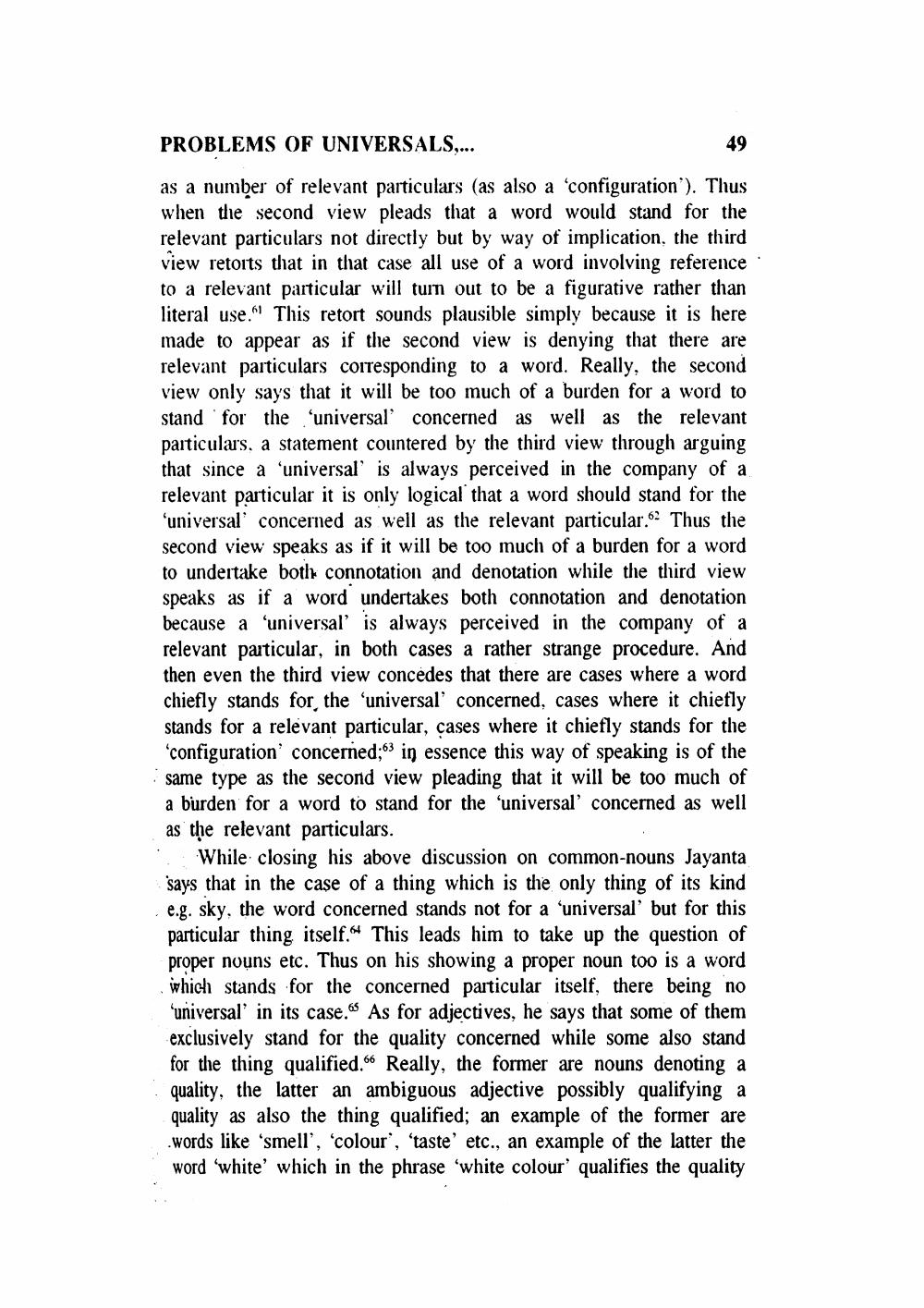________________
PROBLEMS OF UNIVERSALS,...
49
as a number of relevant particulars (as also a 'configuration"). Thus when the second view pleads that a word would stand for the relevant particulars not directly but by way of implication, the third view retorts that in that case all use of a word involving reference to a relevant particular will turn out to be a figurative rather than literal use. This retort sounds plausible simply because it is here made to appear as if the second view is denying that there are relevant particulars corresponding to a word. Really, the second view only says that it will be too much of a burden for a word to stand for the universal concerned as well as the relevant particulars, a statement countered by the third view through arguing that since a 'universal' is always perceived in the company of a relevant particular it is only logical that a word should stand for the ‘universal concerned as well as the relevant particular.62 Thus the second view speaks as if it will be too much of a burden for a word to undertake both connotation and denotation while the third view speaks as if a word undertakes both connotation and denotation because a funiversal' is always perceived in the company of a relevant particular, in both cases a rather strange procedure. And then even the third view concedes that there are cases where a word chiefly stands for the universal concerned, cases where it chiefly stands for a relevant particular, cases where it chiefly stands for the 'configuration concerned,63 in essence this way of speaking is of the same type as the second view pleading that it will be too much of a burden for a word to stand for the 'universal concerned as well as the relevant particulars.
While closing his above discussion on common-nouns Jayanta says that in the case of a thing which is the only thing of its kind e.g. sky, the word concerned stands not for a 'universal' but for this particular thing itself. This leads him to take up the question of proper noạns etc. Thus on his showing a proper noun too is a word which stands for the concerned particular itself, there being no ‘universal in its case. As for adjectives, he says that some of them exclusively stand for the quality concerned while some also stand for the thing qualified. Really, the former are nouns denoting a quality, the latter an ambiguous adjective possibly qualifying a quality as also the thing qualified; an example of the former are words like 'smell', 'colour', 'taste' etc., an example of the latter the word 'white' which in the phrase 'white colour qualifies the quality




